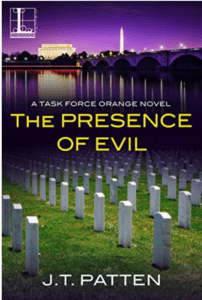Fake it Until You Make it: “How to Sell Yourself as a “Career Author” while you’re on the road to becoming one!”
I don’t know if it has always been the case for aspiring authors, but for me, starting as a clueless scribbler with a draft manuscript felt as though I had to already be a successful writer before I could even become one. Agents and publishers were asking about my marketing platform and sales numbers as if they hadn’t read the first word in my query line – DEBUT. At the same time, social media posts and book event attendees desperate to make connections seemed to indicate there were tens of thousands of other people just like me scrambling to get noticed and somehow rise to the top by some miracle.
Fortunately, as a former intelligence professional who built front companies and fake personas, I decided to operationalize myself as a writer, so at the very least, I could appear to be more than I was to catch the eye and interest of the powers in publishing. While I have yet to arrive, I have learned a few tips and tricks that may help aspiring authors look and feel like they are something more than they are until the big moment arrives. They will be set for greater success.
Here are tips that may cost you a little upfront time and money, but I feel like had I known about them before I embarked on the journey, I would have been better prepared.
What’s in a name?
Who are you? First, what name are you using? When I started writing, I knew that I would have to use a pen name. I researched several successful authors and how they both presented their names and how easy or difficult it was to remember them. For me, I used an older family name, Patten, because it would put me close to James Patterson and as a military thriller writer, Patt-on, the general was a good enough way for people to remember me when thinking about war. To this day, my books are closest to James Patterson on a library shelf, which hopefully gives me some eye-time next to a big dog.
Put your name out in letters.
Now that you know who you are, let everyone else know. Brand your name so it can transcend social media and marketing platforms. JT Patten Books is how I brand my website, Twitter, Facebook, and Instagram. Start off by buying a URL that can host your name, like www.jtpattenbooks.com, and then capture the names across media platforms. I use GoDaddy and spend less than a hundred dollars a year renewing my listed name and hosting a website. These days, it doesn’t take much to use a Web Page Template on a host site so you can link people to your Home. When you contact agents and publishers, having your own name affiliated to your website looks like a more committed author than [email protected].
Start talking.
Social media interaction is a requirement. Start easy with areas of interest to you. Hobbies, beliefs, sports, (hint) books. Make genuine contacts and followers. Expand from there organically. Think in terms of what interests other people, too. Pull and push. Posting you want to be an author and hoping to commiserate with others is one approach, albeit not what a winner author would be doing. Another way to get your voice out in the public is fake news. That’s right. Free public relations sites allow you to post press releases and tag multiple media outlets. I have posted numerous interviews and semi-interesting press releases that have gotten picked up by mainstream media auto-bots that repost my content. If someone Googles you, after the fact, look at that–You’re already covered by NBC News Albuquerque. You must be a semi-famous author.
Get writing with tools for success.
At some point, you need to put up or shut up. The name of the game, here, is writing. Writing requires tools. Often, more than just a typewriter with pencils.
My favorite tool is my laptop.
After years of burning through clunky slow computers, author Josh Hood convinced me to buy a MacBook Air. It’s light, has a backlit keyboard for dim environments, has a long battery life, and can process everything that I need. It also allows me to save my work on the Desktop and in a cloud. Note: Please remember to use some cloud backup whether it’s iCloud, Box, Dropbox, etc. Backups will save your manuscript at least once from disaster.
If you love your laptop and can rely on it, you’ll take it wherever you go. That is key to writing. Write everywhere. I also brand my laptop with stickers. Every now and again, someone sees it and asks about them. It always starts a conversation, which allows you to sell yourself or your writings.
I wished that I would have started out more organized.
Organization: Whether you are a planner or a pantser writer, most authors need to put names somewhere and do research. I wished that I would have started out more organized. However, for less than fifty bucks, you can purchase a lifetime use software tool called Scrivener, which I think is a great way to keep all of your novel components from outline to chapters to photos of scenes. Scrivener makes it easy to cut and move chapters around, too.
Fix Common Pitfalls
Once my manuscript is complete, I do a full self-edit and then I will use a thirty-day free trial of editing software to evaluate my work. Now that I am a more committed writer, I pay for AutoCrit. ProWriting is another great tool, and if you write a blogpost about ProWriting, they will give you a free one-year membership. The importance of this editing software is that whether or not you are a newbie or seasoned writer, you have to put your best foot forward. What you think is likely good enough to submit to an agent or editor probably isn’t. By using an automated tool, you can identify not only typos but overused words, grammar issues, point of view problems, pacing, etc. Remember, you’ve been writing this first book for quite some time and have probably read it at least four to five times. When it comes to proofing your own work, you don’t know what you don’t know and can’t see what you are reading in your head and not on the pages.
Don’t Phone a Friend
Look. I know you’ve been writing the great American novel for the past three years. You know it, your family knows it, and your friends know it. And if you’re on social media, the world knows it. We can’t help it. We’re excited. Our first novel becomes part of us and our short- and long-term dreams. But remember, it’s not really part of everyone else’s day today. Frankly, everyone else may be getting annoyed. So, when it’s time for you to have someone read your draft, don’t give it to them if you want an honest answer. Are they really going to tell you it sucks? Will they break your heart only to have to hear about it more? No. Here’s what you do. There are a million and one qualified freelance Developmental and Content editors who offer to review your first chapter as a free sample. Do it. And then do it again with a different editor. And again, with another one.
Remember that the first page and first paragraph is the first thing your agent prospect or future publisher will see.
Master that first chapter. Once your content is solid, enlist a Copy editor. Finally, a Proof Reader. The bottom line is that you need to put your best foot forward with your first sentence, first page, and first paragraph. Depending on how many red lines you receive from your free sample editors, you can get an idea of what you need to do throughout your book. Use the first chapter as a template. When you have rewritten the book, consider going back to the editor(s) who gave you the most honest feedback about what worked and what did not, and pay them to completely review your manuscript.
Beta Readers
Once you have completed the editing task, get into some genre groups on Goodreads and solicit a few members to read your manuscript. As bookworms, most will be happy to provide some honest feedback and direction. When you have completed these steps, now it is ready for friends and family feedback. So, please ask for a chat.
Don’t query blindly. Build rapport & connect personally with decision-makers.
I’ve changed jobs quite a few times in my career. Never have I received one of my job offers from a company where I sent in my resume blindly. Imagine just sending a resume to a company simply because they hire people, but you don’t know if they are hiring or what they are hiring for. And yet, we do this all the time with agent and publisher queries.
Don’t try to query your way over the fence. Jump it!
Instead, I take the same approach that I do with a job change or that I would seek to recruit a prospective intelligence asset. I do my homework first by spotting my target, assessing them for a pitch, and then I move to recruit them. The same can be done in publishing. Discover who and what you are looking for and then make a connection. I landed my agent by first connecting with the publishing editor and a month of building rapport before I even thought about trying to sell them a book. When the time was right, I pitched the concept. After dinner and talks about a prospective book deal, I contacted a pre-targeted agent and sent them a clean and finished manuscript, an author platform, the semblance through a webpage that I had been around, and a book deal prospect, and I landed a conversation. I think it took twenty minutes for an email response.
Walk the Walk
As I said before, I have not arrived as a New York Times best-selling author. I’m a mid lister who knows the genre, can get to #2 of Amazon Best Selling 99 cent books every now and again, knows most of the key authors, and being sought by many for content advice. Why? Because I’m here and try to make my presence somewhat known. I’m still learning to write better and still have hopes of hitting the top of the charts. Until then, I’m faking it to make it talking the talk and walking the walk until I’m ready to make my next move for a swing at the fences. Does it work? You’re still reading my article. Best of luck!
Join the discussion on Facebook!
 “J.T. Patten” has worked in counterterrorism intelligence mission support of national defense and policy initiatives. He has a degree in Foreign Language, a Masters in Strategic Intelligence, graduate studies in Counter Terrorism from the University of St.
“J.T. Patten” has worked in counterterrorism intelligence mission support of national defense and policy initiatives. He has a degree in Foreign Language, a Masters in Strategic Intelligence, graduate studies in Counter Terrorism from the University of St.  Andrews, and expertise in mobile device and cyber security, forensics, and financial crime investigations. Patten shares a combination of these unique experiences with readers to give them a taste of “the black.” His latest thriller, THE PRESENCE OF EVIL can be found wherever books are sold.
Andrews, and expertise in mobile device and cyber security, forensics, and financial crime investigations. Patten shares a combination of these unique experiences with readers to give them a taste of “the black.” His latest thriller, THE PRESENCE OF EVIL can be found wherever books are sold.





